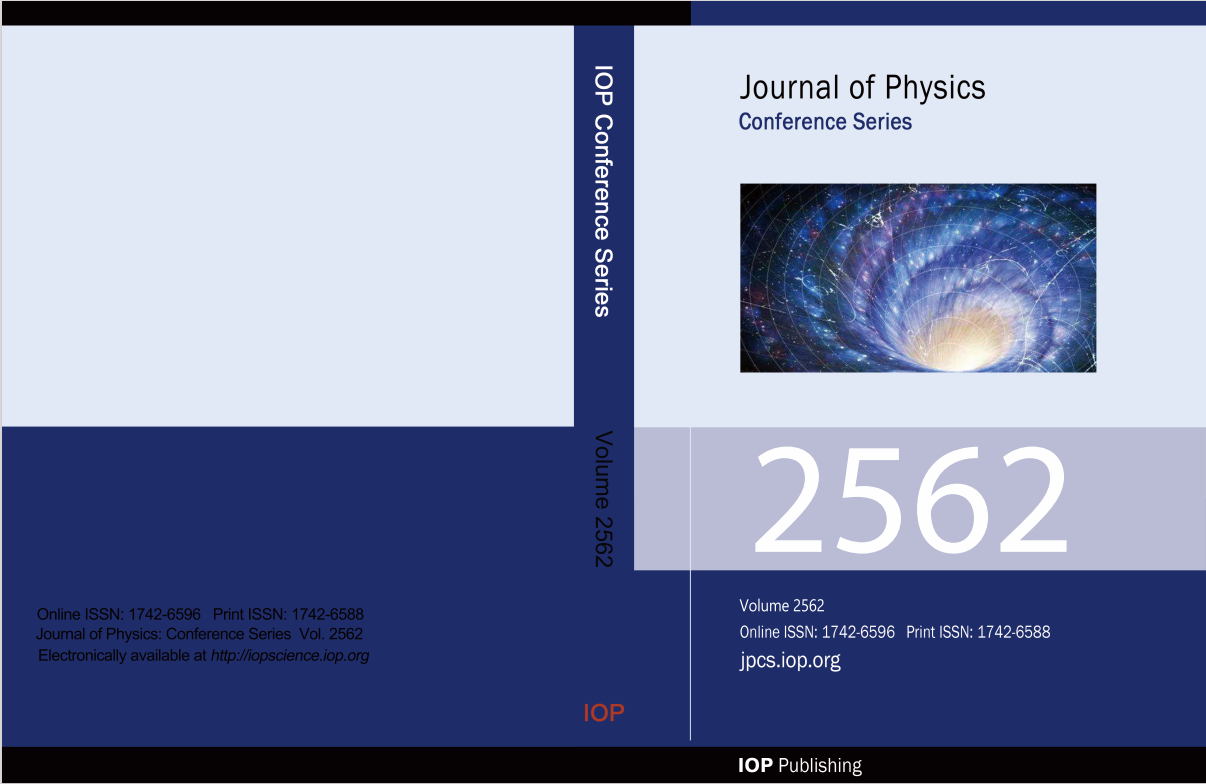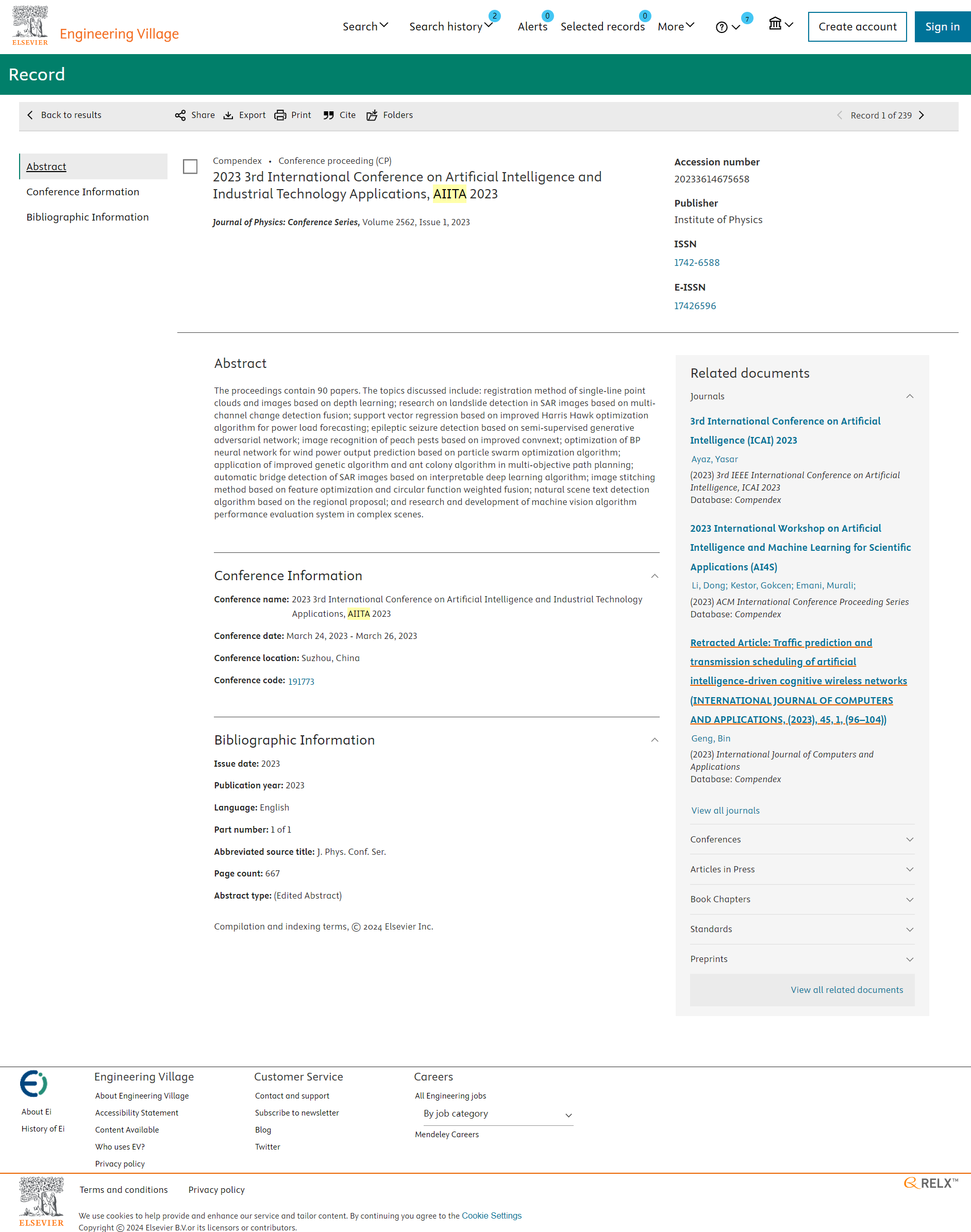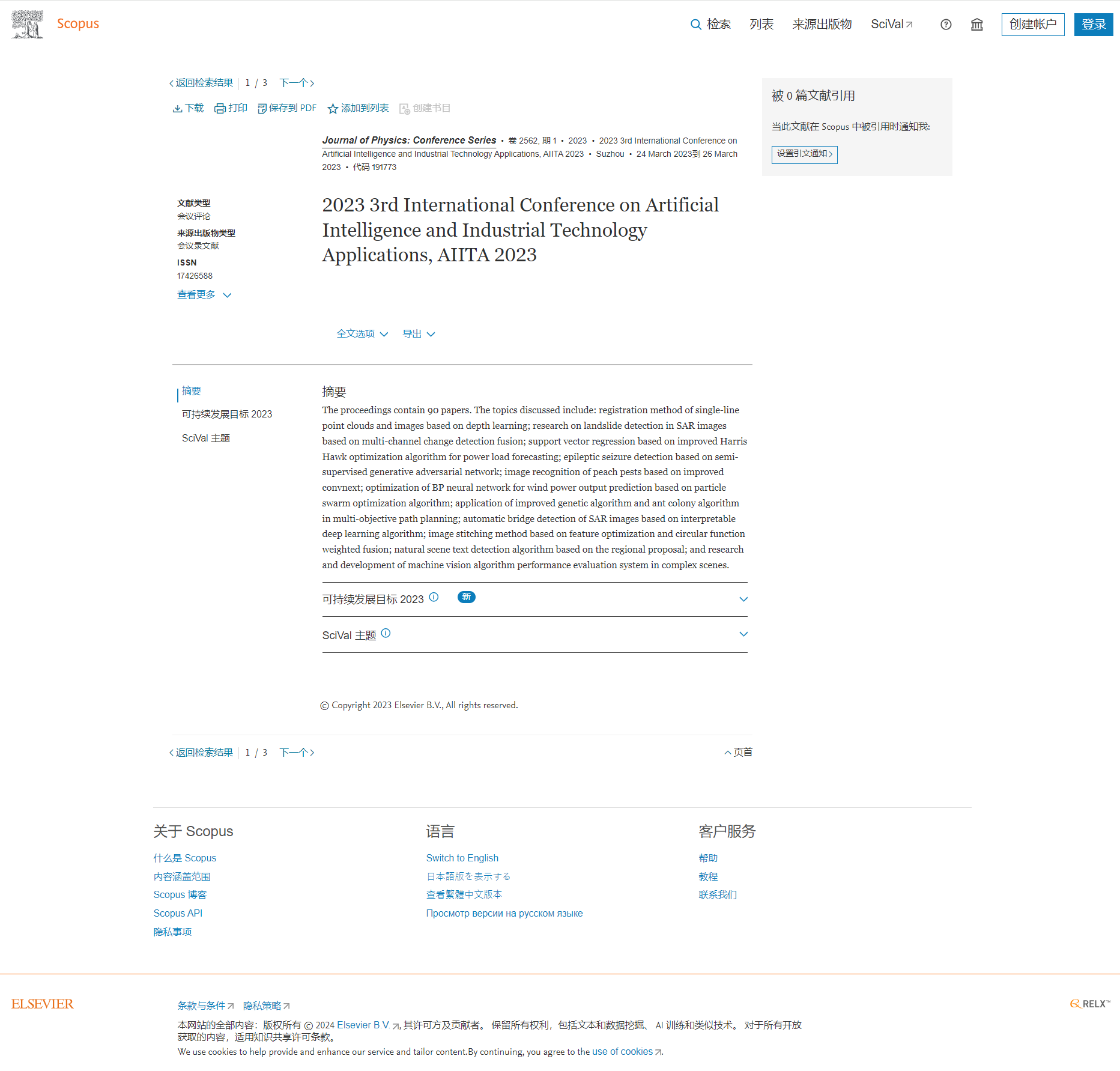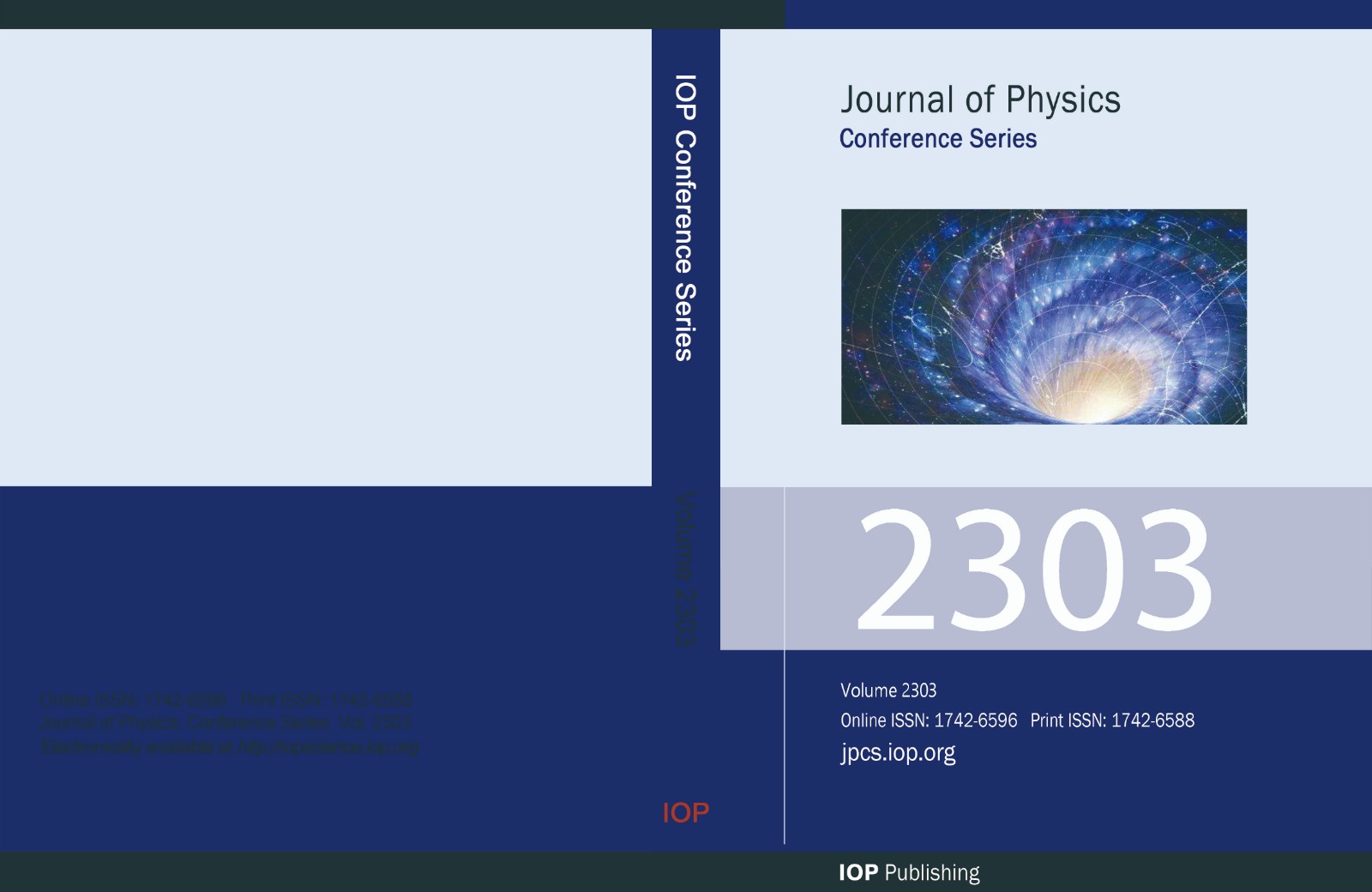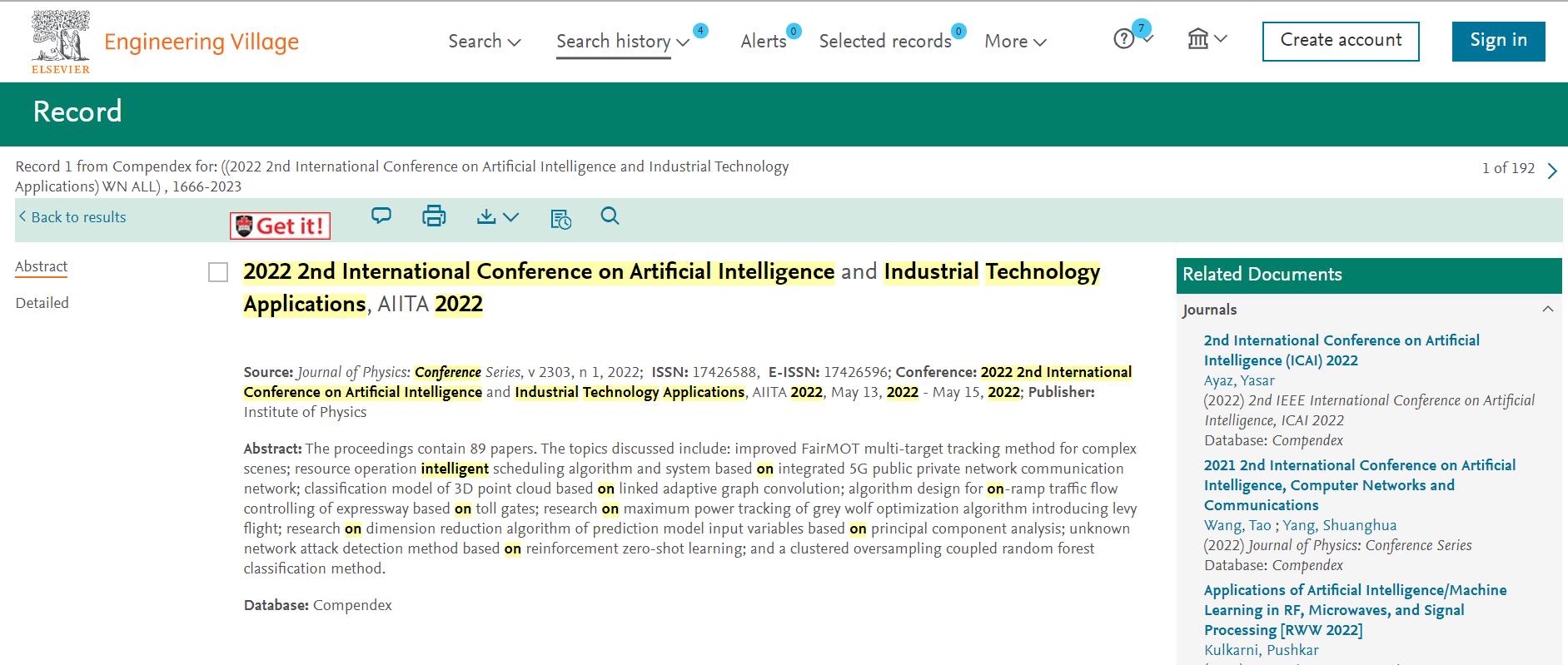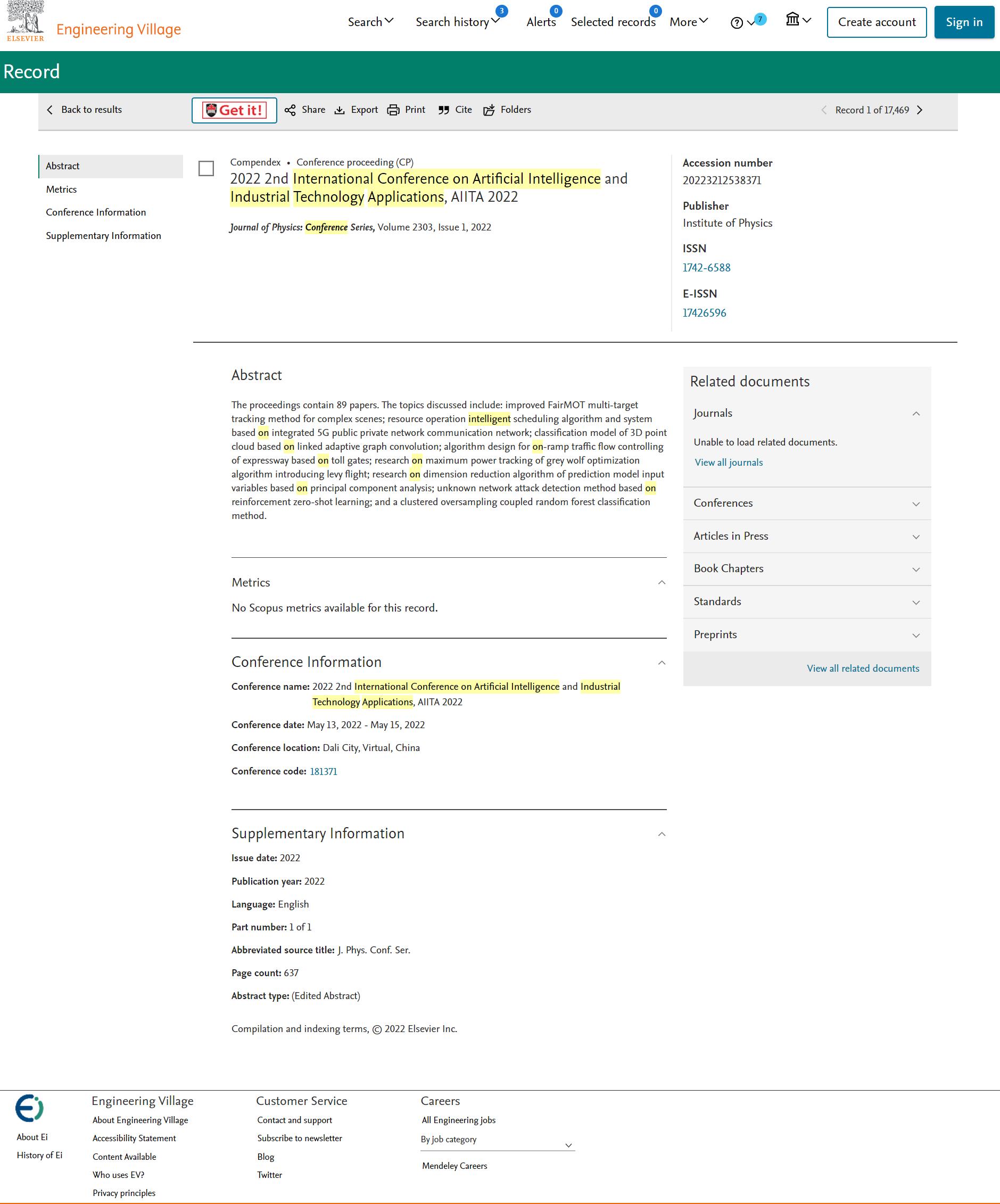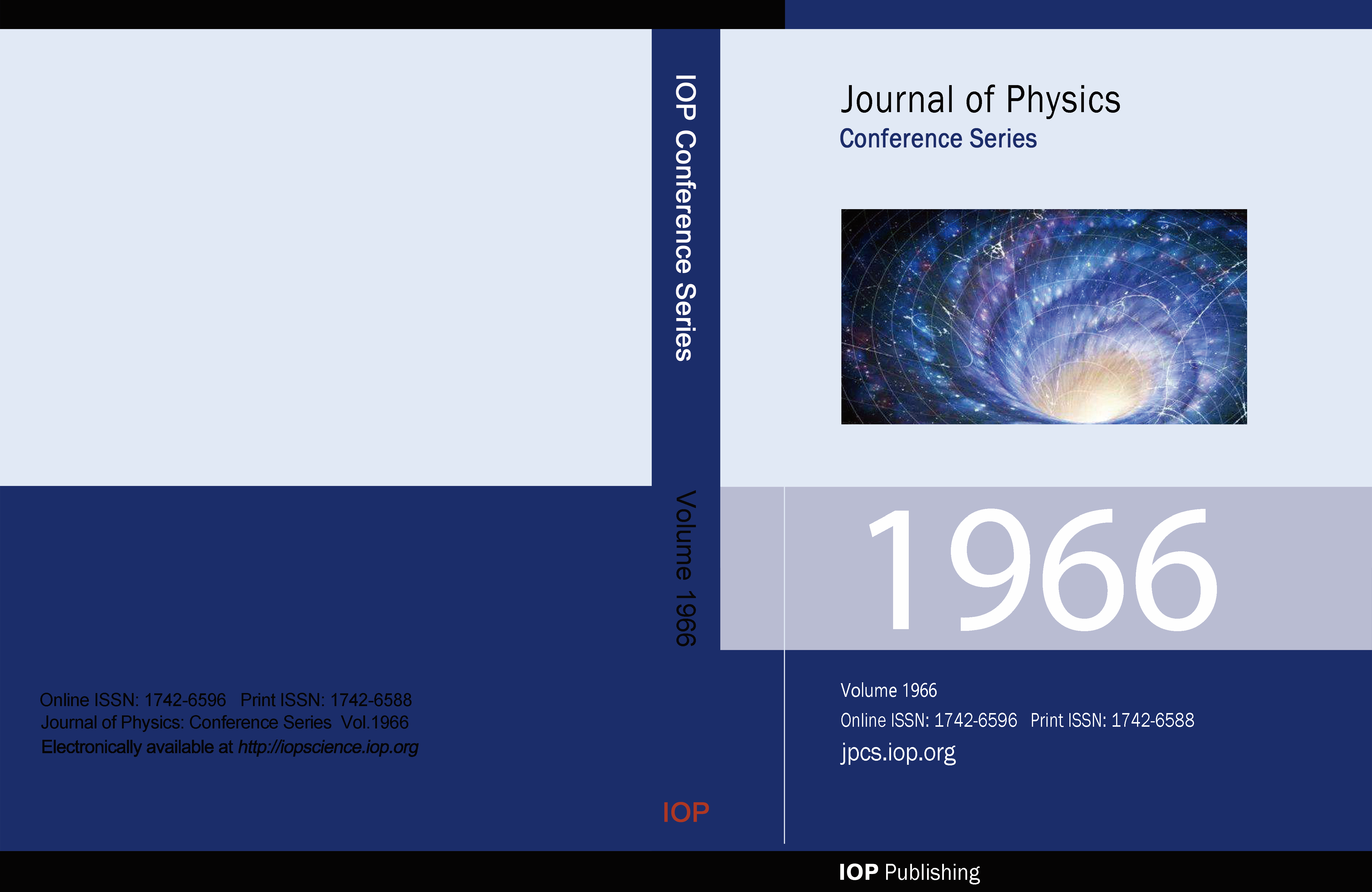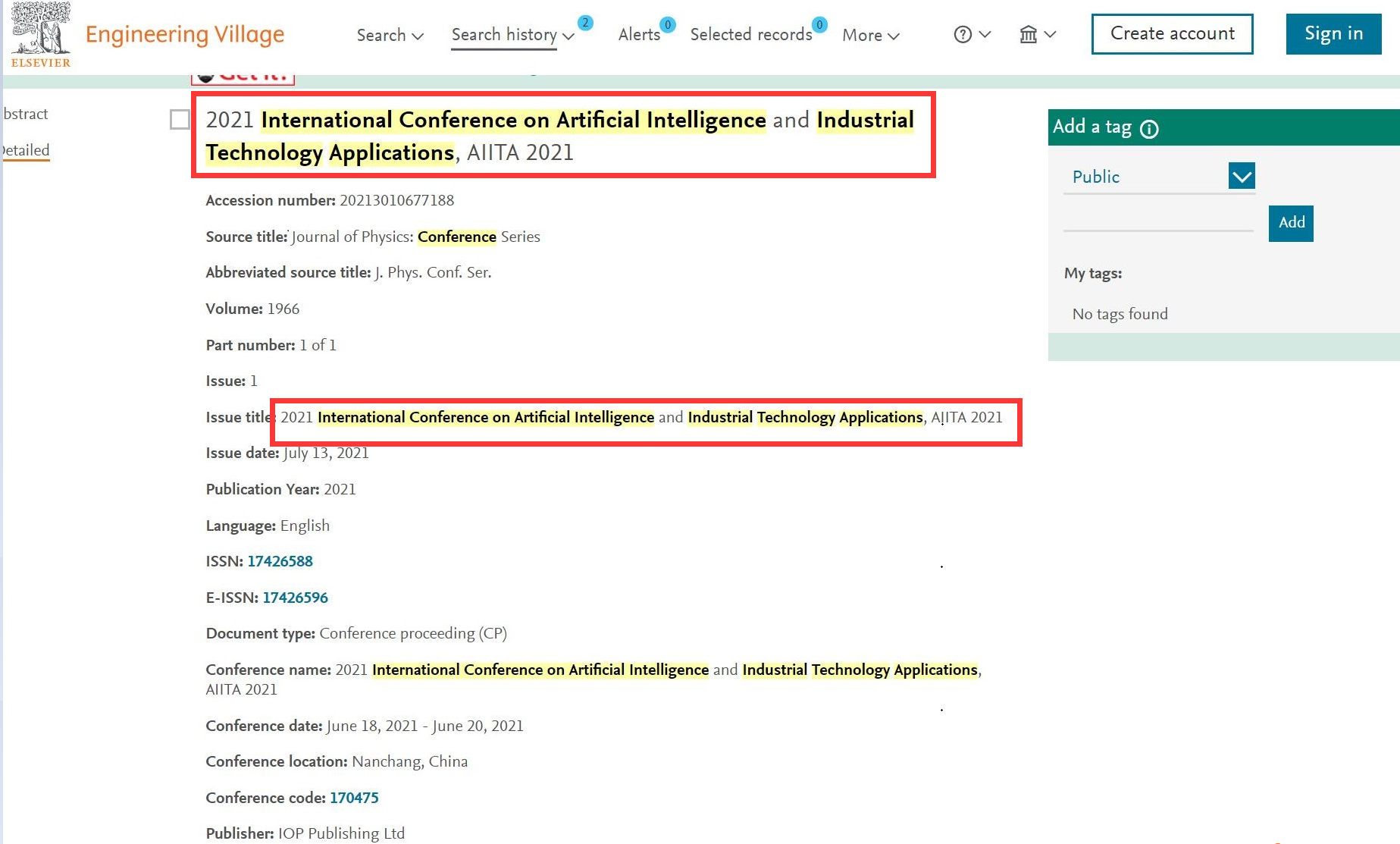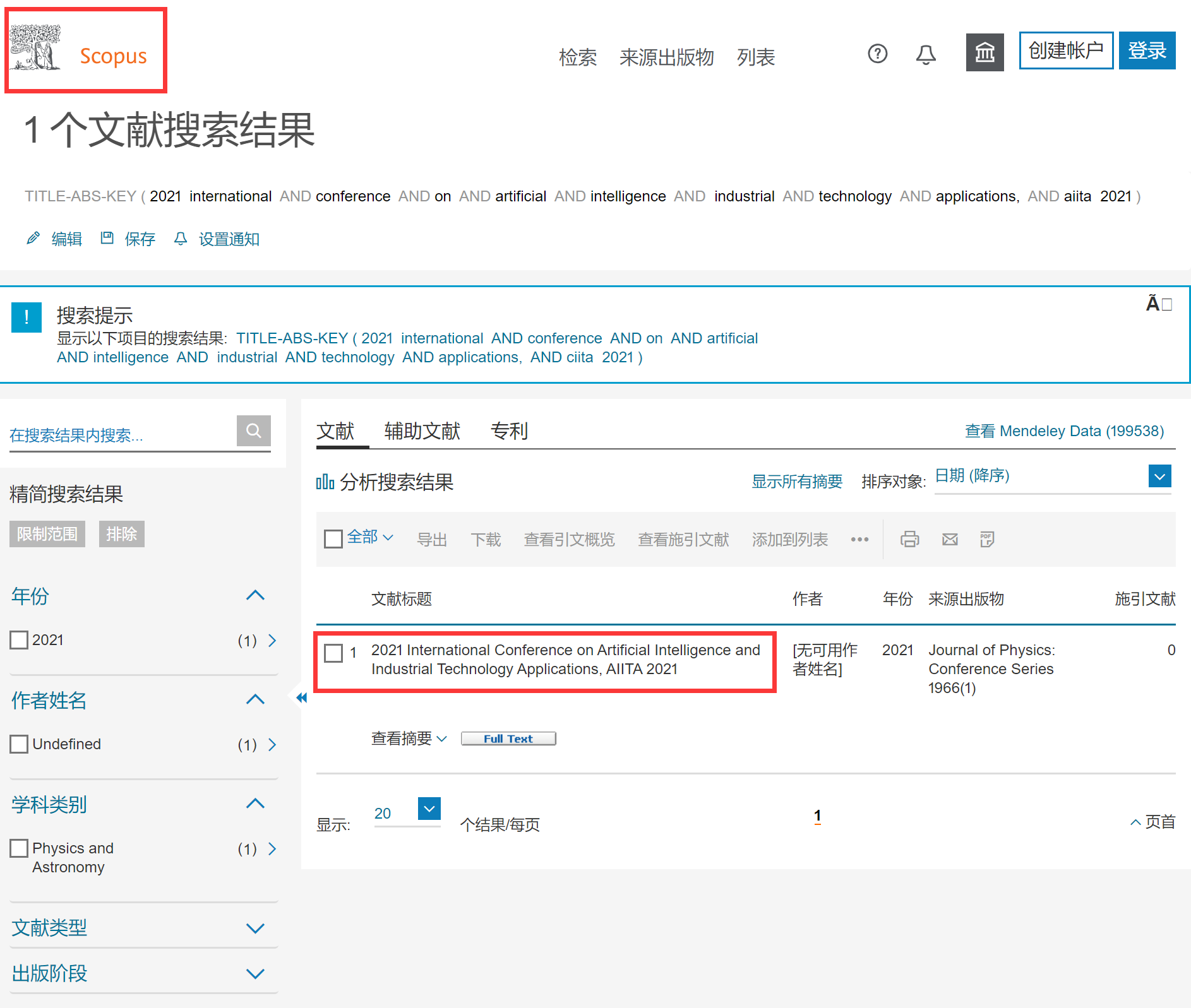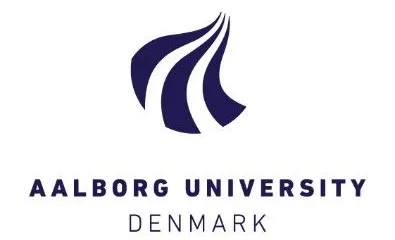


- About AIITA 2024 - 2024 4th International Conference on Artificial Intelligence and Industrial Technology Applications Artificial Intelligence (AI) has emerged as a captivating topic in modern academic and scientific circles. As a particularly novel research direction, it consistently generates groundbreaking studies and inventions related to artificial intelligence and computing. Furthermore, AI finds extensive applications across diverse fields, encompassing robotics, decision-making, control systems, simulation applications, and numerous other domains. The 2024 4th International Conference on Artificial Intelligence and Industrial Technology Applications (AIITA 2024) is scheduled to take place in Guangzhou, China, from April 12 to 14, 2024. This conference aims to serve as a platform for exploring and discussing innovative ideas and remarkable achievements in AI and computer applications, bridging the gap between theoretical research and practical applications. AIITA warmly welcomes authors to submit their articles highlighting ongoing research results, projects, surveys, and industrial experiences that showcase significant advancements in all related areas. |
IMPORTANT DATES
Full Paper Submission Date April 08, 2024 | Notification Date April 08, 2024 | Final Paper Submission Date April 08, 2024 | Conference Dates April 12-14, 2024 |
- SUBMISSION -
For more information, please click: Submission | - Registration - Access the registration system, Fill information and pay online. : For more information, please click: Registration |
- CALL FOR PAPERS - The topics of interest for submission include, but are not limited to: Templates: Downloads | - PUBLICATION -
All papers will be reviewed by two or three expert reviewers from the conference committees. After a careful reviewing process, all accepted papers will be published in Journal of Physics: Conference Series (JPCS) (ISSN:1742-6596), and submitted to EI Compendex, Scopus for indexing. |
Submission and Review Process Requirement All the submissions must be sent to our submission system before the submission deadline. The submissions must be reviewed by preliminary review and peer-review (double blind). The preliminary review will take 1-3 working days by our Committee Members, if the submission passed the preliminary review, then it will be peer-reviewed by 2-3 Committee Members. And the review results come out within 25-30 days. If the paper needs revising (minor or major revisions), the revised version should be submitted again for peer review by the initial reviewer(s). If the submission passed the peer-review and accepted by our reviewers, then we will finally accept this paper and let the author revise the paper format based on the Paper Format Template. All accepted papers after proper registration and presentation will be included in the conference proceedings, which will be submitted for indexing by Ei Compendex and Scopus. | |
AIITA 2023
Papers of AIITA are indexed by Ei Compendex and Scopus.
AIITA 2022
Papers of AIITA are indexed by Ei Compendex and Scopus.
AIITA 2021
Papers of AIITA are indexed by Ei Compendex and Scopus.
Supported By
| Technical Supported by
|
Media Partners |
If you have any question or inquiries, please feel free to contact us.Contact


